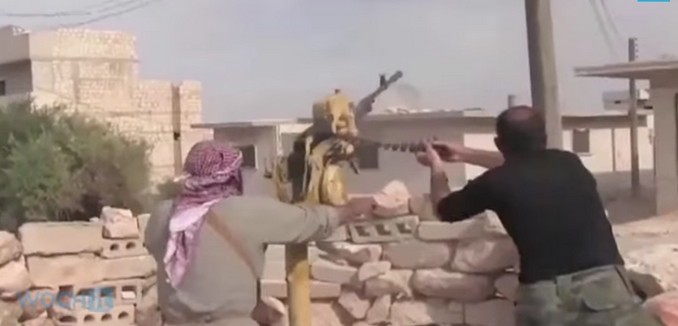Iranian-backed Shiite militias in Iraq are threatening the Kurdish regions in northern Iraq according to a report published Wednesday in The National Interest. The report quotes a minister from the Kurdish Regional Government (KRG), Mustafa Sayid Qadir, who explains:
[…] From the KRG perspective, two Shia militia forces—Asaib Ahl Haq and the Badr militias—are uncontrollable.
Both these militias are backed by Iran, and the their military operations are effectively overseen by Qassem Suleimani, the head of the Qods Force, which serves as the external arm of Iran’s elite Islamic Revolution Guards Corps (IRGC). […]
The Iranian-backed Shia militias are most active in Diyala, a province that borders both Iran and the KRG. The situation is seen by the Kurds as becoming increasingly untenable, particularly as the Shia militias are moving closer to Kirkuk. This is a strategic but disputed city claimed by both Kurds and Arabs, which has been under Peshmerga control since June when Iraqi government forces fled the city. Kurdish fears about a new front opening up is also rooted in the fact that the Ministry of Peshmerga has no official working arrangement with the Shia militias despite the fact that they have at times worked together against ISIS.
The authors of the report, Alex Vatanka and Sarkawt Shamsulddin, note that fear of the Iranian-backed militias come at a time when the Kurdish Peshmerga forces have demonstrated a capability to repel the Islamic State of Iraq and Syria (ISIS) forces and hold territory captured from the group, with little help from Washington.
Already in September of last year, Phillip Smyth warned that “Iraqi Shiite militias are also on a collision course with the Kurdish community.”
Iran controls numerous militias in an attempt to “slowly impart and legitimize its ideology and power within Iraq.”
In ISIS: Can the West Win Without a Ground Game?, published in the October 2014 issue of The Tower Magazine, Jonathan Spyer wrote that support for the Kurds should be a component of the West’s strategy not simply against ISIS, but also against Iran:
In other words: If political Islam (rather than one specific jihadi group, to quickly be replaced by another) is the real problem, then the real solution is to ally, forcefully and over the long haul, with those forces most committed to stopping it: Israel, Jordan, the Saudis, and the Kurds.
So it may be seen that a lack of strategic understanding of the nature of the conflict being waged is preventing the development of a coherent response to the specific problem of the Islamic State, along with the parallel problems of Shia terror groups such as Hezbollah, and the ambitions of the Islamic Republic of Iran. At root is the failure to grasp the implacable nature of political Islam in both its Sunni and Shia variants at the present time.
[Photo: WochitGeneralNews / YouTube ]




